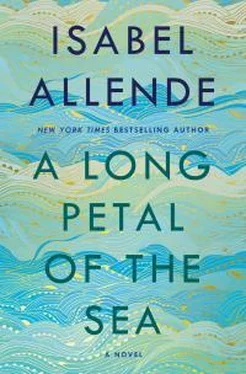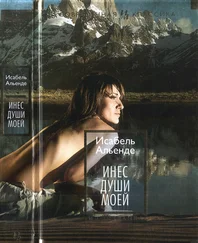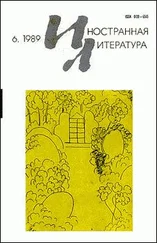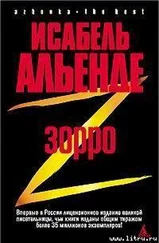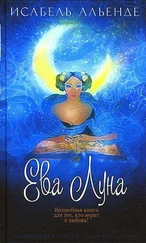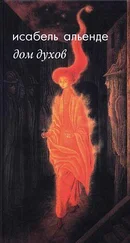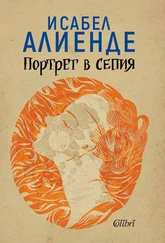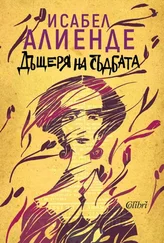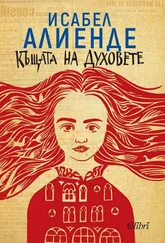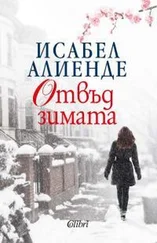When he finally went home to bathe and change clothes, Victor was confronted by an unrecognizable city, clean and painted white. In those few days the revolutionary murals and banners inciting hatred had disappeared, as had the garbage, the bearded men and women in trousers. He noticed in shop windows products that previously had been available only on the black market, but there were few customers because prices had soared. Soldiers and armed police were keeping watch; there were tanks on street corners and closed vans hurtled by, howling like jackals. The spotless order of barracks and the artificial peace of fear reigned everywhere.
As he was entering his home, Victor greeted his neighbor of many years, who poked her head out at that moment. She didn’t return his greeting, slamming shut her window. That should have served as a warning, but he simply shrugged, thinking the poor woman was as bewildered as he was by the latest events. His house was exactly as he had left it in his hurry to get to the hospital on the day of the coup: the unmade bed, clothes strewn about, food with green mold in the kitchen. He didn’t have the heart to tidy up. He fell flat on his back in bed and slept for fourteen hours.
—
IT WAS AROUND THIS time that Pablo Neruda died. The military coup had been the culmination of his worst fears. He couldn’t withstand it, and his health suddenly declined. While he was being taken by ambulance to a Santiago clinic, troops raided his home at Isla Negra, trashed his papers, and trampled on his collections of bottles and all kinds of shells, searching for weapons and guerrilla fighters. Victor went to visit him at the clinic, where the guards frisked him, took his fingerprints, photographed him, and in the end the soldier guarding the door to the poet’s room blocked the entrance.
From what he knew of Neruda’s illness, and because he had seen him looking well only a month earlier, Victor was surprised at the suddenness of his death. He wasn’t the only one who was suspicious: a rumor soon went around that Neruda had been poisoned. Three days before he was interned in the clinic, the poet wrote the final pages of his memoir filled with the bitter disappointment of seeing his country divided and subjugated, and his friend Salvador Allende buried in an inconspicuous spot with his widow the only mourner… that glorious dead figure was riddled and ripped to pieces by the machine guns of Chile’s soldiers, who had betrayed Chile once more, he wrote. He was right to say the Chilean military had rebelled before against a legitimate government, but the weak collective memory had erased those earlier betrayals from history. The poet’s funeral was the first protest against the coup-mongers, and it wasn’t prohibited because the eyes of the world were watching. Victor was operating on a gravely ill patient and couldn’t leave the hospital. He learned the details several days later from one of his patients.
“There weren’t many people, Doctor. Do you remember the huge crowd in the National Stadium when there was that homage to the poet? Well, I think there must have been about two hundred of us at most in the cemetery.”
“The news of his death has just come out in the newspapers, so it was too late. Not many people knew either of his death or his burial.”
“People are scared.”
“Many of Neruda’s friends and admirers must be in hiding or in prison. Tell me what it was like.”
“I was up at the front. I was a bit frightened, because there were soldiers with submachine guns lining the route in the cemetery. The coffin was covered with flowers. We were walking along in silence until somebody shouted: ‘Comrade Pablo Neruda!’ and we all shouted back ‘Here, now and forever!’ ”
“What did the soldiers do?”
“Nothing. Then one brave guy shouted ‘Comrade President!’ and we all shouted ‘Here, now and forever!’ It was so moving, Doctor. We also shouted that the people united would never be defeated. The soldiers did nothing, but there were some guys taking photos of those of us in the cortege. Who knows what they want them for.”
Victor was suspicious of everything. Reality had become hard to grasp, people lived in the midst of lies, omissions, and euphemisms, in grotesque exaltation of the blessed fatherland, brave soldiers, and traditional morality. The word “comrade” was erased: nobody dared pronounce it. There were whispered rumors about concentration camps, summary executions, thousands and thousands of people, fugitives and exiles, arrested or disappeared, stories of torture centers where dogs were used to rape women. Victor wondered where the torturers and informers had been before, as he had never seen them. They seemed to have emerged in the space of a few hours, ready and organized as if they’d been in training for years. The deep Chile of the Fascists had always been there, beneath the surface, just waiting to emerge. It was the triumph of the arrogant Right, the defeat of the people who believed in that utopian revolution.
He learned that, like so many others, Isidro del Solar had returned to Chile a few days after the coup, ready to reclaim their privileges and the reins of the economy, although not political power. For the time being, that lay with the generals while they restored order to the chaos into which Marxism had plunged the country. No one apart from the generals imagined how long the dictatorship would last.
—
IT WAS HIS NEIGHBOR who denounced Victor Dalmau. The same woman who two years earlier had asked him to use his friendship with the president to secure a place for her son in the police force, the same one on whom he had operated to insert a couple of heart valves, the same one who swapped sugar and rice with Roser, the same one who attended Carme’s funeral in tears.
Victor was arrested at the hospital. Three men in civilian clothes who didn’t identify themselves came to look for him while he was in the operating room. At least they had the decency to wait until he finished operating.
“Come with us, Doctor, it’s just routine,” they ordered him brusquely. Out in the street they pushed him into a black automobile, handcuffed and blindfolded him. The first punch was to his stomach.
Victor Dalmau had no idea where he was until two days later, when they had finally had enough of their interrogations and dragged him out of the bowels of the building, took off the blindfold and handcuffs, and he was able to breathe fresh air. It took him several minutes to adjust his eyes to the blinding midday light and recover his balance so that he could stand up. He was in the National Stadium. A very young conscript gave him a blanket, took him by the arm without violence, and led him slowly over to the stand he had been assigned to. Victor found it hard to walk: his whole body was aching from the beatings and electric shocks, he was as thirsty as a shipwrecked sailor and couldn’t figure out what day it was, or remember exactly what had happened. He could have been in the hands of his torturers for a week or only a few hours. What had they asked him? Allende, chess, Plan Z. What on earth was Plan Z? He had no idea. There were others in similar cells, noise from giant ventilators, hair-raising screams, bullets. “They shot them, they shot them,” murmured Victor.
He saw thousands of prisoners in the stands, guarded by soldiers. He had been there before for soccer matches and cultural events, like the homage to Pablo Neruda. When the conscript who had brought him there moved away, another prisoner came up to Victor. He took him to a seat and offered him water from a thermos. “Don’t worry, comrade, I’m sure the worst has passed.” The prisoner let him empty the thermos, then helped him lie down and put a rolled-up blanket under his head. “Get some rest. We’re going to be here a long while.” He was a metalworker who was arrested two days after the coup and had been in the stadium for weeks. At dusk, when the heat lessened and Victor could sit up, he explained the routine.
Читать дальше
